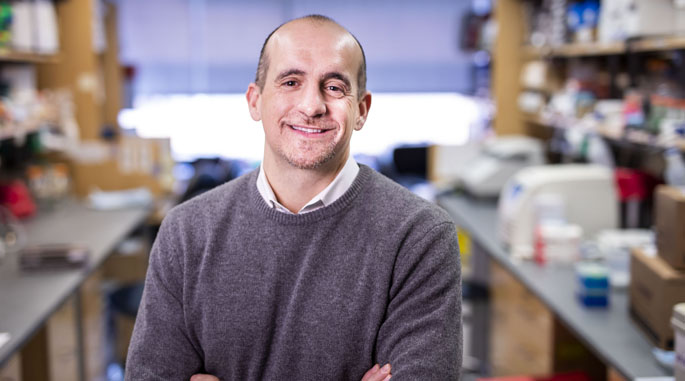
by Leigh MacMillan
Jim Cassat, MD, PhD, associate professor of Pediatrics, Pathology, Microbiology and Immunology, and Biomedical Engineering, has received a three-year, $750,000 award from the G. Harold and Leila Y. Mathers Foundation to support research exploring the interplay between bone homeostasis and infectious disease.
The Mathers Foundation’s mission is to “advance knowledge in the life sciences by sponsoring scientific research that will benefit mankind.” The Foundation seeks to support innovative basic science projects with potential translational applications.
“I am grateful to the Mathers Foundation for this award, which will allow our laboratory to tackle a new research direction focused on crosstalk between the skeletal and immune systems,” said Cassat, who is also an associate director of the Vanderbilt Institute for Infection, Immunology, and Inflammation.
Cassat’s previous research has focused on host-pathogen interactions in the context of invasive bone infection (osteomyelitis). He and his colleagues developed animal models and unique imaging technologies to study these interactions, and they published a comprehensive evaluation of the metabolic pathways that support Staphylococcus aureus (“staph”) growth during invasive bone infections.
With the Mathers Foundation award, the team will investigate how signals that regulate bone homeostasis impact antibacterial responses outside of the skeleton. In response to certain signals, white blood cells called monocytes can become osteoclasts — bone-resorbing cells that are essential to maintaining bone health. Cassat and his colleagues will study how the signals that control the monocyte-to-osteoclast transition affect the ability of cells to fight bacterial pathogens.
Cassat completed his medical and doctoral degrees at the University of Arkansas in Little Rock. He came to Vanderbilt in 2008 for an accelerated two-year residency in pediatrics, followed by a fellowship in pediatric infectious diseases. He joined the faculty in 2014 and was recently named to the 2022 cohort of Chancellor Faculty Fellows.












